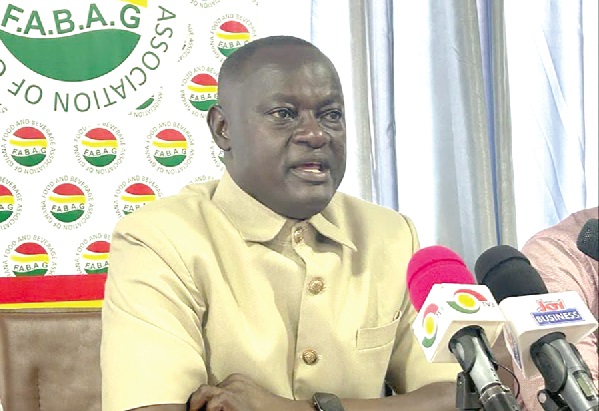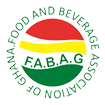- January 10, 2024
- Posted by: capello
- Category: News

THE Food and Beverage Association of Ghana (FABAG) has appealed to the government to make the 2024 budget business friendly by doing away with what they described as nuisance taxes in the tax structure.
Speaking at a press conference in Accra last Monday, the Executive Chairman of the association, John Awuni, was convinced that such an initiative would enable the private sector, the engine of growth, to thrive and perform sustainably.
The call comes at a time when the business community has raised serious concerns about the number of taxes imposed on goods and services produced in the country.
At the ports, importers have also complained about the numerous charges and levies which makes their goods expensive, particularly raw materials for production.
Analysts have held the view that much as the government was in dire need of revenue, it was wrong to, a they put it, impose taxes indiscriminately because of its negative impact on th economy as a whole.
To them, there is the need for the government to work to widen the tax net and not increase it because such an action only goes to burden the same people already in the tax net.
In the last couple of years, the government has not been able to access funding because the doors to the international capital markets have been closed because of the country’s debt level which has reached unsustainable levels.
Economic growth
Mr Awuni said reducing the current level of indirect taxes and levies in the budget could spur the desired economic growth in the long run.
“Several international studies have established that tax cuts have positive effects on growth, although some papers note that the strength of this effect depends on which taxes are cut, for whom and when,” he added.
In light of that, he advocated the cancellation of some taxes in the 2024 fiscal year including the COVID-19 Levy, Network tax, special levy, taxes on juices and certain foods among other things.
He also said considering the low level of incomes in the country, the government could trigger higher demand for goods and services in the private sector if taxes were reviewed downwards.
“Increased demand for goods will obviously lead to higher sales volume and higher production levels in industry and consequently more revenue for the government. The basic economic principle of the higher the price, the lower the demand cannot be ignored in the case of Ghana,” he explained.
Volumes
The Executive Chairman of FABAG indicated that there was a direct link between sales volumes and business growth and profitability, on one hand, and the amount of taxes the government mobilised for development, on the other.
He explained that reviewing taxes appropriately would give businesses the benefits of economies of scale production and allow them to create more jobs which would translate into more revenue.
“The Nigeria market is peculiarly attractive in the sub region because of the tremendous high sales volumes the market offers to businesses. China is doing much better due to the benefits of mass scale production the private sector is enjoying,” he said.
Smuggling
Mr Awuni further asserted that revising and cancellation of some taxes would also stifle the smuggling of goods such as rice, sugar and general fast moving consumer goods which was becoming attractive due to the over taxation of the formal sector.
He also said it would enable them to invest into research and development for business expansion.
“Ghana has tried the option of higher taxes for decades and yet our economy keeps failing, it is time to try the option of tax net expansion, with lower taxes and scrapping unfriendly levies and duties, and business friendly taxes in the 2024 fiscal year,” he stressed.
